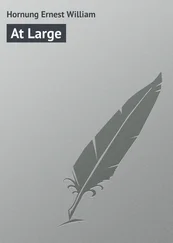Ernest Hornung - Fathers of Men
Здесь есть возможность читать онлайн «Ernest Hornung - Fathers of Men» — ознакомительный отрывок электронной книги совершенно бесплатно, а после прочтения отрывка купить полную версию. В некоторых случаях можно слушать аудио, скачать через торрент в формате fb2 и присутствует краткое содержание. Жанр: foreign_prose, на английском языке. Описание произведения, (предисловие) а так же отзывы посетителей доступны на портале библиотеки ЛибКат.
- Название:Fathers of Men
- Автор:
- Жанр:
- Год:неизвестен
- ISBN:нет данных
- Рейтинг книги:5 / 5. Голосов: 1
-
Избранное:Добавить в избранное
- Отзывы:
-
Ваша оценка:
- 100
- 1
- 2
- 3
- 4
- 5
Fathers of Men: краткое содержание, описание и аннотация
Предлагаем к чтению аннотацию, описание, краткое содержание или предисловие (зависит от того, что написал сам автор книги «Fathers of Men»). Если вы не нашли необходимую информацию о книге — напишите в комментариях, мы постараемся отыскать её.
Fathers of Men — читать онлайн ознакомительный отрывок
Ниже представлен текст книги, разбитый по страницам. Система сохранения места последней прочитанной страницы, позволяет с удобством читать онлайн бесплатно книгу «Fathers of Men», без необходимости каждый раз заново искать на чём Вы остановились. Поставьте закладку, и сможете в любой момент перейти на страницу, на которой закончили чтение.
Интервал:
Закладка:
And now it was that Rutter horrified his companion by accosting with apparent coolness a big fellow just emerged from one of the Lodge studies.
“Do you mind telling us if a boy they call Devereux has got back yet?” asked Jan, with more of his own idioms than he had often managed to utter in one breath.
“I haven’t seen him,” the big fellow answered civilly enough. But his stare followed the retreating couple, one of whom had caught the other by the arm.
“I shouldn’t talk about 'a boy,’ if I were you,” Carpenter was saying as nicely as he could.
But Rutter was quite aware of his other solecisms, though not of this one, and was already too furious with himself to brook a gratuitous rebuke.
“Oh! isn’t it the fashion? Then I’ll bet you wouldn’t!” he cried, as he shook off the first arm which had ever been thrust through his by a gentleman’s son.
A ball like a big white bullet was making staccato music in Heriot’s outer fives-court; two school caps were bobbing above the back wall; and a great thick-lipped lad of sixteen or seventeen, who was hanging about the door leading to the studies, promptly asked the new boys their names.
“What’s your gov’nor?” he added, addressing Carpenter first.
“A merchant.”
“A rag-merchant, I should think! And yours?”
Jan was not embarrassed by the question; he was best prepared at all his most vulnerable points. But his natural bluntness had so recently caused him such annoyance with himself, that he replied as politely as he possibly could:
“My father happens to be dead.”
“Oh, he does, does he?” cried the other with a scowl. “Well, if you happen to think it funny to talk about 'happening’ to me, you may jolly soon happen to wish you were dead yourself!”
The tap had indeed been turned on, and the water was certainly rather cold; the more fortunate for Rutter that his skin was thick enough to respond with a glow rather than a shiver.
CHAPTER IV
SETTLING IN
Jan’s impressions were not the less vivid for his determination not to be impressed at all; for no attitude of mind is harder to sustain than one of deliberate indifference, which is not real indifference at all, but at best a precarious pose. Jan was really indifferent to a large extent, but not wholly, and the leaven of sensibility rendered him acutely alive to each successive phase of his experience; on the other hand, the fact that he was not too easily hurt was of immense value in keeping his wits about him, and his whole garrison of senses at attention. Sensitive he was, and that to the last degree, on a certain point; but it was a point no longer likely to arise that night. And meanwhile there was quite enough to occupy his mind.
There was the long-drawn arrival of the house, unit by unit, in bowler hats which changed as if by magic into old school caps, and even in “loud” ties duly discarded for solemn black. Then there was tea, with any amount of good cheer in hall, every fellow bringing in some delicacy of his own, and newcomers arriving in the middle to be noisily saluted by their friends. Nobody now took the slightest notice of Jan, who drifted into a humble place at the long table, which was still far from full, and fell to work upon the plain bread and butter provided, until some fellow pushed a raised pie across the table to him without a word. The matron dispensed tea from a gigantic urn, and when anybody wanted another cup he simply rattled it in his saucer. Jan could have made even more primitive use of his saucer, for the tea was hot if not potent. But fortunately there were some things it was not necessary for Carpenter to tell him, for that guide and counsellor was not in hall; he had gone out to tea with another new boy and his people, who knew something about him at home.
Jan was allowed to spend the evening in an empty study which he might or might not be able to take over next day, according to the place assigned to him in the school; meanwhile the bare boards, table, Windsor chair, and book-shelf, with an ironically cold hot-water pipe, and the nails with which the last occupant had studded the walls, looked dismal enough in the light of a solitary candle supplied by Morgan. The narrow passage resounded with shouts of laughter and boyish badinage from the other studies; either the captain of the house had not come back, or he was not the man to play the martinet on the first night of the term; and Jan, left as severely alone as even he could have wished, rose with alacrity when one in passing pounded on his door and shouted that it was time for prayers. He was in fact not sorry to mingle with his kind again in the lighted hall, where the fellows were already standing in their places at table, armed with hymn-books but chatting merrily, while one of the small fry stood sentinel in the flagged passage leading to the green baize door. Jan had scarcely found a place when in flew this outpost with a sepulchral “hush!” In the ensuing silence came Miss Heriot followed by her brother, who began by giving out the hymn which she played on the piano under the shelf with the cups, and which the house sang heartily enough.
It was one of the many disadvantages of Jan’s strange boyhood that he had been brought up practically without religion. Mention has been made of an eccentric clergyman who was the first to take an interest in Jan’s intellectual welfare; unhappily, his eccentricities had been of such a character as almost to stultify his spiritual pretensions; and in his new home the boy had encountered another type of clerical example which had been but little better in its effect upon his mind. Prayer had never been to him the natural practice which it is to young English schoolboys of all shades of character and condition. So he paid very little attention to the prayers read by Heriot, at this first time of hearing; but even so the manly unaffected voice, and a few odd phrases on which it dwelt in gentler tones, were not altogether lost upon Jan. Nevertheless, when he went up to dormitory, after biscuits (which he heard called “dog-rocks”) and milk, and another dreary half-hour in the empty study, the last thing he feared or thought about was the kind of difficulty which had beset little Arthur in a certain chapter of Tom Brown which had not appealed to Jan. And all this may be why he was so much impressed by what happened in the little dormitory at the top of the house, when he and his three companions were undressing for bed.
Joyce, the captain of the dormitory, who proved to be a rather delicate youth with a most indelicate vocabulary, suddenly ceased firing, as it were, and commanded silence for “bricks.”
“Know what 'bricks’ are?” asked Bingley, who occupied the “tish” adjoining Jan’s, and turned out to be a boy of his own age, instead of the formidable figure of his imagination.
“It’s your prayers,” said Joyce, with such an epithet that Jan could not possibly believe him.
“You are a brute, Joyce!” cried Crabtree, poking a clever red head through his curtains.
“Nevertheless, my boy,” rejoined Joyce, imitating a master through his nose, “I know what bricks are, and I say them.”
“Obvious corruption of prex ,” began Crabtree, in didactic fashion, when Joyce cut him short with a genial malediction, and silence reigned for the best part of a minute.
Jan went on his knees with the others, though he had not done so the night before, and his lips moved through the Lord’s Prayer; but in his heart he was marvelling at the language of the nice tall fellow in the far corner. It was the kind of language he had often heard in the stables, but it was the last kind that he had expected to hear in a public school; and somehow it shocked him, for the first time in his life. But on the whole he was thankful to find himself in such pleasant company in dormitory, and it came to him to express his thankfulness while he was on his knees.
Читать дальшеИнтервал:
Закладка:
Похожие книги на «Fathers of Men»
Представляем Вашему вниманию похожие книги на «Fathers of Men» списком для выбора. Мы отобрали схожую по названию и смыслу литературу в надежде предоставить читателям больше вариантов отыскать новые, интересные, ещё непрочитанные произведения.
Обсуждение, отзывы о книге «Fathers of Men» и просто собственные мнения читателей. Оставьте ваши комментарии, напишите, что Вы думаете о произведении, его смысле или главных героях. Укажите что конкретно понравилось, а что нет, и почему Вы так считаете.












